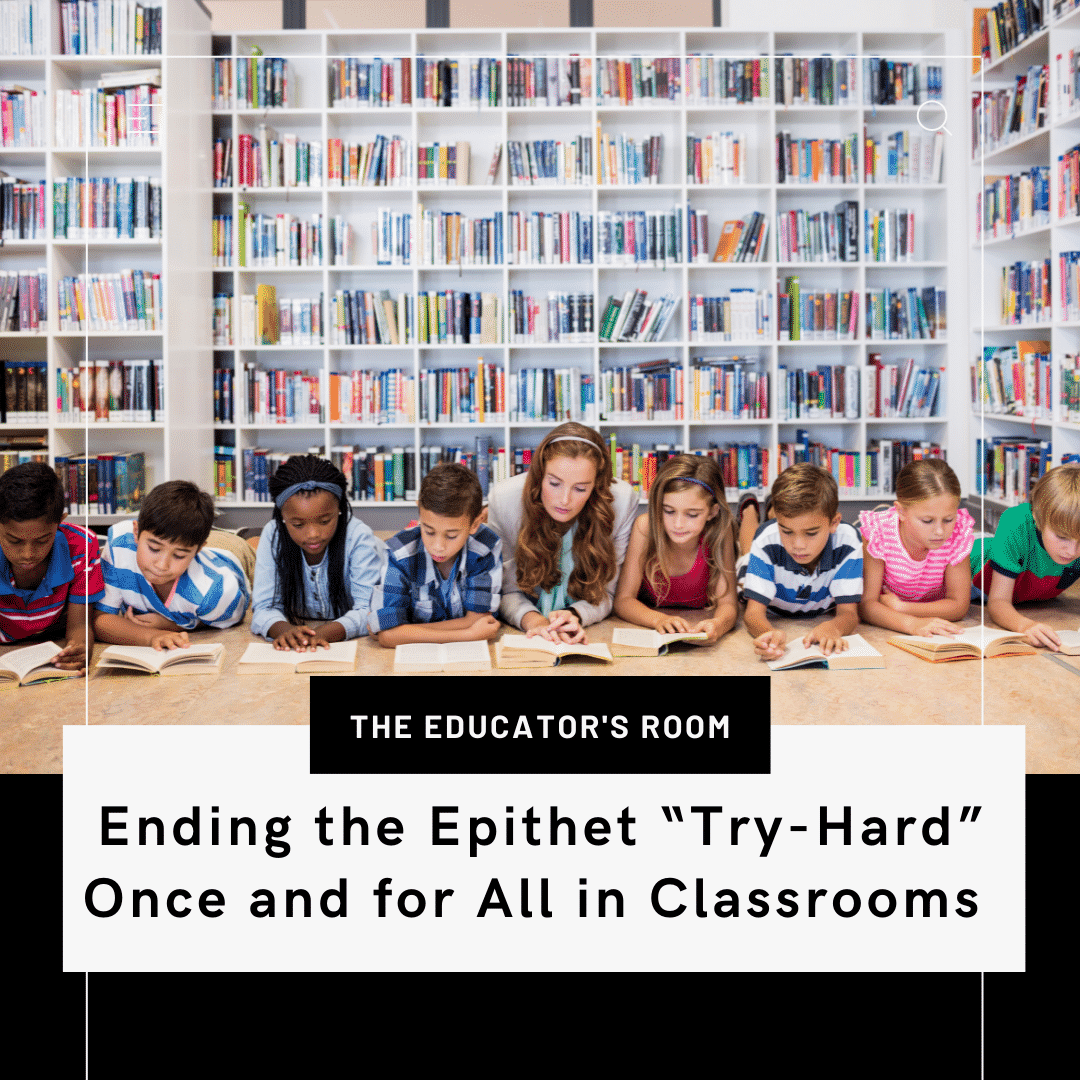“Stop being such a try-hard, Tina.”
There are many words kids use to insult one another. Most of them are so bad I wouldn’t dare print them here. They’re also so wrong and reprehensible that teachers quickly swoop in and stop it.
But for this term – the “try hard” – teachers just laugh it off.
And that needs to stop — now.
The completely unacademic Urban Dictionary defines the word “try-hard” as “somebody whose effort level and emotional investment is excessively high for the level of play in which they are competing.”
The example uses a guy who puts everything into a Sunday slow-pitch softball league, ignorant it’s not the World Series.
But here’s the thing. What do we define as the “level of play?” For children between the ages of 5 and 18, there are no bigger levels of play than school. That was evident throughout much of American history. Going back to the genesis of compulsory, state-sponsored public school, academic achievement was considered something worthwhile to improving one’s status and station.
[bctt tweet=”Today, we’ve allowed students to define the level of play. Instead of classes being something to which they attempt to excel, succeed, persist, and exude a commitment to prominence, we’ve allowed the encouragement to fall to a least common denominator.” username=””]
Many students don’t want others to project at school; instead, they want their peers to reject school.
Other students accomplish this by defining what is acceptable, and doing all of one’s homework, achieving high grades, and participating regularly is beneath that “level of play.”
I have a hard time understanding teachers’ lack of intervention because we are ballers at this job and often overcommitted in a positive way. They are the “Try-Hard” profession and expect those who work in other fields to do great work. For example:
- When we get our haircut, we don’t want a slacker
- When we go shopping, we thoroughly enjoy the sales associate who places their investment in customers
- At dinner, we seek servers who are invested in us at the table
- The “try-hard-iest” doctors and dentists who keep up with the latest and greatest research on their fields are going to be the ones I visit
So why would we tolerate students yelling the epithet “try-hard” as acceptable language in our classrooms?
Here’s what I’m doing next year: at the front of my room – right next to my classroom rules – I’ll place a large sign with the word “TRY-HARD” with an equally large red “no” circular symbol overtop of it.
Because I want students to stop trying to convince others to not do their best, and only try to build our community and make one another better.
Instead, I want kids to Try Their Best. Today. Tomorrow. And always.






